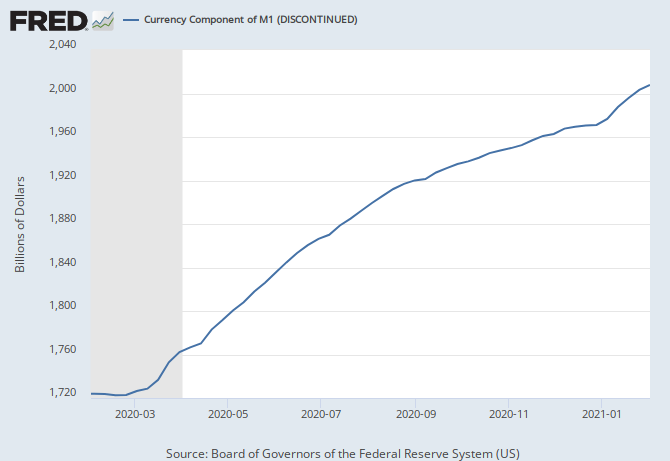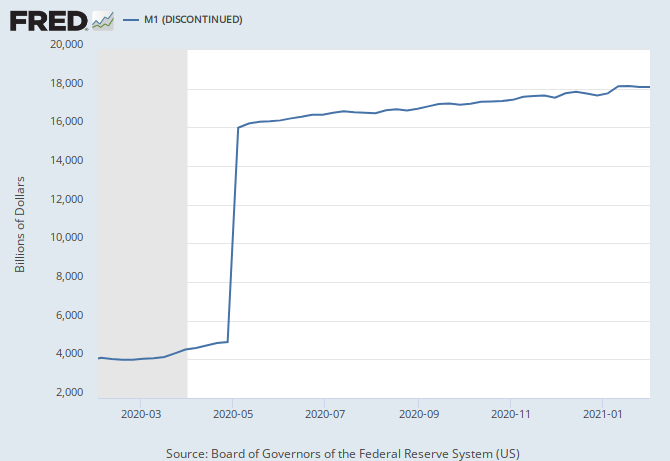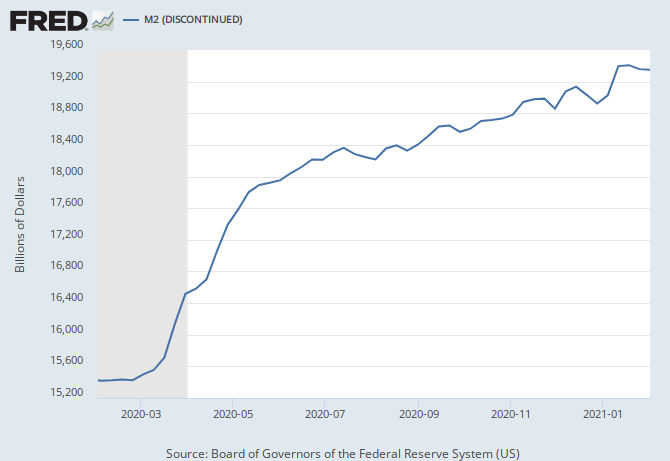They are not money that is withheld from deposits, or salted away in case of emergency.
Back to my $100 million in deposits. The Fed is now holding $10 million.
How is that different than "withheld from deposits, or salted away in case of emergency"?
- There's one think you probably intuitively understand but I want to make clear.
Cash is one of the things that banks can buy from the Fed with reserves. That's how cash is distributed - the Treasury "lends" it to the Fed (which is the "reason" the Fed gives all its profits to the Treasury - as "interest" on the Federal Reserve Notes it has "borrowed" from the Treasury and put into circulation), who sells it to banks in exchange for reserves.
Sales of cash are controlled to customer needs - refilling ATMs, basically - to what are called "existing obligations".
That's how cash is distributed - the Treasury "lends" it to the Fed
The Treasury doesn't lend it to the Fed or "lend" it to the Fed. Sorry.
(which is the "reason" the Fed gives all its profits to the Treasury - as "interest" on the Federal Reserve Notes it has "borrowed" from the Treasury and put into circulation),
That's funny. At what "interest rate" are the FRNs "lent" out?
Back to my $100 million in deposits. The Fed is now holding $10 million.
How is that different than "withheld from deposits, or salted away in case of emergency"?
- The Treasury absolutely does lend FRNs to the Fed. It prints them and let's the Fed use them. The Fed's ability to print bank notes was stripped from it in 1921 - almost a century ago.
Interest rate? "Every penny of the Fed's profits" is the interest rate.
The Treasury absolutely does lend FRNs to the Fed.
No it doesn't. The Fed buys them from the BEP. Buy, not borrow.
Sorry, you're just wrong. Look at the Fed's consolidated financial statements. On the income statement, they make a note to explain their "remittance to the Treasury" - that it is "interest" on all Federal Reserve Notes in circulation, which the Fed theoretically "borrows" from the Treasury. It does not buy them.
On the income statement, they make a note to explain their "remittance to the Treasury" - that it is "interest" on all Federal Reserve Notes in circulation,
Your confusion is both wide and deep.
Federal Reserve Notes in circulation, which the Fed theoretically "borrows" from the Treasury.
The distribution of coins differs from that of currency in some respects. First, when the Fed receives currency from the Treasury, it pays only for the cost of printing the notes. However, coins are a direct obligation of the Treasury, so the Reserve Banks pay the Treasury the face value of the coins.
How Currency Gets into Circulation - Federal Reserve Bank of New York



